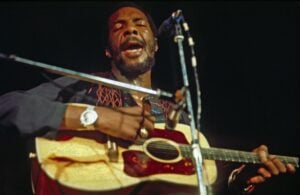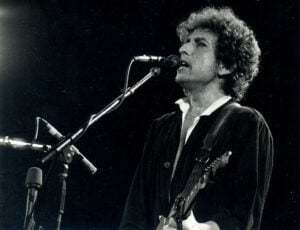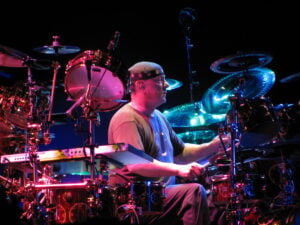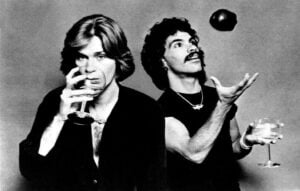6 Unreleased Rock Songs That Only Exist as Bootlegs

via Early Led Zeppelin Band Portrait / YouTube
Fans of classic rock sometimes wonder about tracks that never made it onto official albums. These songs only circulate among collectors, and they offer a glimpse into what might have been if the bands had chosen to share them with the world. Below are six well-known examples. They exist solely in unofficial form, yet they continue to spark interest among listeners who crave rare recordings. Each one provides insight into the creative process, showing how these legendary groups tested ideas and sounds. Some might surface one day, but for now, they remain hidden treasures that live on in bootleg lore.
1. “Revolution (Take 20)” by The Beatles
This hidden version of the famous Beatles track surfaced on bootleg recordings decades after the band split. It includes extra sound effects and a longer structure, blending elements that were later used in “Revolution 9.” Fans were stunned to hear how the group experimented with tape loops and studio tricks.
Though the final version became a staple in the Beatles’ catalog, this take was never given an official release. Collectors still treasure the rough audio for its insight into the creative process. It shows how the band tested different ideas before deciding on a final cut for the album.
2. “Swan Song” by Led Zeppelin
This instrumental was rumored to be a work in progress during the band’s mid-1970s sessions. Some believe it was intended for inclusion on “Physical Graffiti” but was set aside. Bootleg recordings reveal a moody guitar theme with layered drums. The unfinished track gives listeners a glimpse into Led Zeppelin’s creative flow.
Though it never made it to an album, fragments of the composition appear to have influenced later songs. Fans who collect rare Zeppelin material find this piece intriguing. It captures the group in a raw state, trying new ideas that might have evolved if they had chosen to continue with it.
3. “Seabirds” by Pink Floyd
This track was linked to the band’s soundtrack work for the film “More” in 1969. The officially released version does not match what was shown in the movie. Bootleg copies of a different recording circulate among fans, featuring gentle acoustic guitar and early signs of the group’s atmospheric sound.
Pink Floyd’s archives remain difficult to navigate, and the real version of “Seabirds” is not on any official release. Listeners debate whether the missing master tape still exists. Despite the uncertainty, collectors cherish the bootleg for its historical value. It offers a window into the band’s creative direction at the time.
4. “Drift Away” by The Rolling Stones
During the early 1970s, The Rolling Stones recorded a cover of Dobie Gray’s hit, “Drift Away,” but never released it. Bootleg versions reveal Mick Jagger’s vocal take on this soulful tune, backed by the band’s signature rhythm. The rough mix features some studio chatter and a relaxed vibe that fans enjoy.
Despite its simple arrangement, the recording has a certain appeal. Listeners speculate about why it was left off official albums, especially since the group has revisited other unreleased tracks in later reissues. For now, it remains an item only found on unofficial compilations, adding to the Stones’ long list of hidden gems.
5. “Time Is Passing” (Complete Version) by The Who
The Who recorded “Time Is Passing” for the “Lifehouse” project in 1971. A partial version appeared on a rare compilation, but the full recording only circulates among dedicated fans. The bootleg reveals a more complete arrangement, showcasing Pete Townshend’s thoughtful songwriting and the band’s energetic playing style.
Many listeners believe the full version would have fit well on “Who’s Next,” one of the group’s most acclaimed albums. The incomplete official release suggests missing tapes or studio challenges. Although the band has opened its archives for special editions, the complete version of “Time Is Passing” remains elusive in official form.
6. “Black Gold” (Acoustic Demos) by Jimi Hendrix
Shortly before his passing, Hendrix recorded a series of acoustic sketches that fans call “Black Gold.” The tapes were entrusted to his friend and collaborator, who eventually made them available for partial listening. Bootleg collectors have shared fragments, but no official release of the complete recordings has ever emerged.
Listeners hear Hendrix experimenting with acoustic chords and humming melodies that could have grown into full tracks. This material stands apart from his well-known electric style. Many hope these tapes will receive an authorized release one day, but for now, they remain a sought-after item that only exists in unofficial form.

















